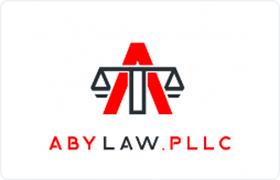Camden Criminal Lawyer, Mississippi
Sponsored Law Firm
-
 x
x

Click For More Info:
-
Abby Law, PLLC
403 B Towne Center Blvd Suite 102 Ridgeland, MS 39157» view mapCriminal Defense Law Get the Legal Support You Need
If you need an experienced litigation attorney, look no further than Aby Law, PLLC. We are a trusted general practice law firm in Ridgeland, MS.
800-953-2840
James H. Murphy
✓ VERIFIEDDivorce & Family Law, Criminal, Accident & Injury
Offering several years of legal experience to our clients at Murphy Law Firm, PLLC, founding attorney James H. Murphy devotes his practice exclusively... (more)
Michael Saltaformaggio
Traffic, Workers' Compensation, Criminal, Accident & Injury
Status: In Good Standing
FREE CONSULTATION
CONTACT Heather Aby Ridgeland, MS
Heather Aby Ridgeland, MS Practice AreasExpertise
Practice AreasExpertise

